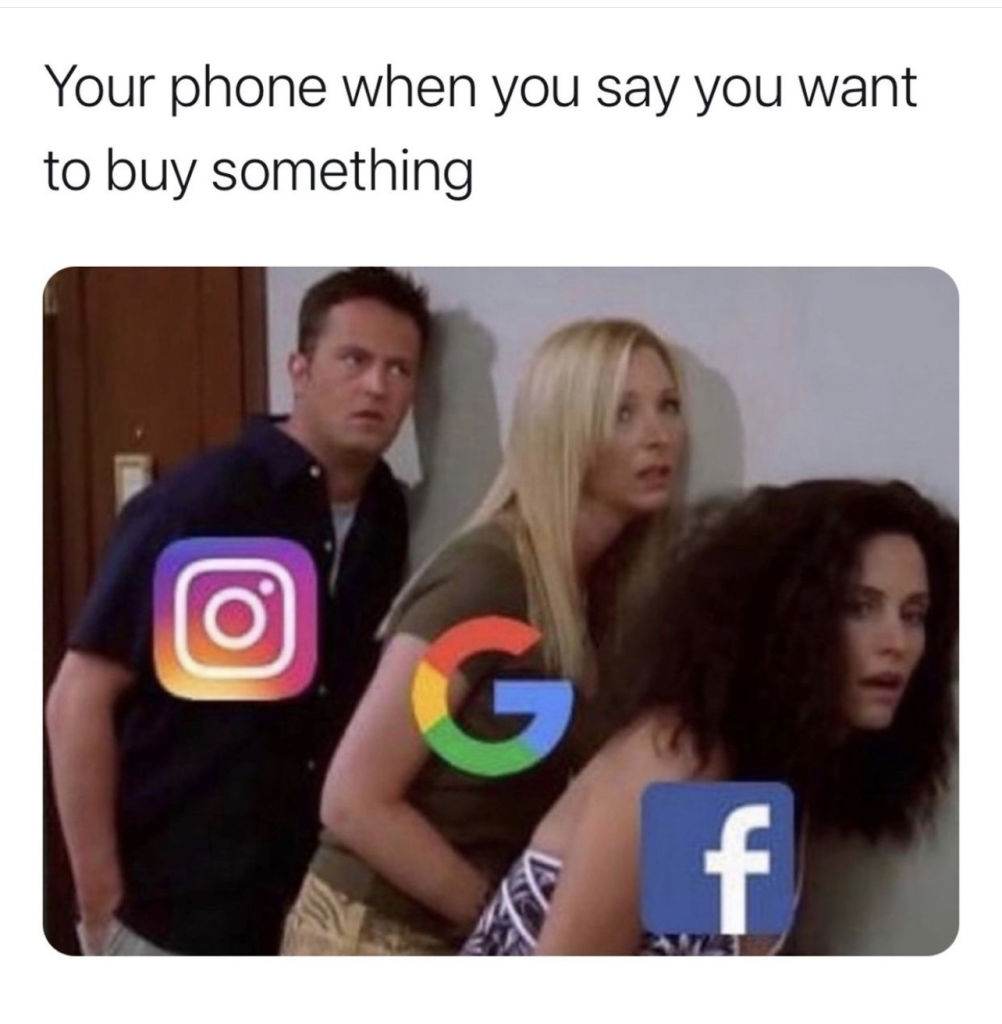Do you ever feel like there’s a little FBI agent on the other side of your phone? Or that someone’s watching you? What are the odds that relevant ads start showing up on your social media after telling your friends how much you want to buy something? There is no such thing as a coincidence… right? You’re sure someone must be listening in, but how?

Recently, I had an encounter with a friend in which we were discussing winter jackets that she was looking to purchase for her two dogs. She showed me some models she had found online and I offered to join her in the store which sold them to find the perfect fit for her furbabies. Three hours later, after leaving, having purchased the necessary coats to keep them warm, I was scrolling Instagram on the tram back home and started receiving ads for dog coats, even some of which we purchased. Although it is bizarre and might seem coincidental, I didn’t blink twice. I knew that this is how the algorithm works and it was bound to happen. (That or it’s just the FBI agent on the other side of my phone)
Although this isn’t the first time I’ve experienced something like this, it still weirds me out. I question If someone is listening to me and my friend have our conversation, but apparently, it’s more complicated than that. The algorithm (as I understand it) is like a living organism that is continuously subject to change based on new factors. This algorithm can be implemented by marketing agencies or companies such as TikTok to make your online experience more personalized. These two work hand in hand, as the more personal the content you get exposed to is, the more you end up enjoying your content, and thus, the more you enjoy your content, the more optimized ads you receive, having a larger chance of them leading to a sale. But now the question becomes, how does the algorithm gather the data to know what to show you?
This required me to look a bit into how this actually happens. Apps such as Facebook and Instagram don’t listen in, but rather track both your online and offline behavior. By tracking the location of your phone, these Apps can determine if you are somewhere together with a friend, for example like me being at my friend’s house. These apps can track that she had been Googling good brands for dog coats and noticed me being with her, and then us being at the pet store.
So although it feels like there’s an FBI agent on the other side of my phone, following and tracking my every action, it is just the algorithm using data that Apps such as Facebook and Instagram collect such as location, likes, searches on other websites, and demographics to optimize the ads I get presented. So fear not, no one is listening to your conversations, the algorithm is just extremely good at figuring out what advertisements would be relevant to you.
Sources:
https://www.mcnuttpartners.com/why-we-see-digital-ads-after-talking-about-something/




Your explanation of how apps track online and offline behavior to deliver personalized ads is clear and eye-opening. It’s easy to assume that these coincidences are due to microphones, but your breakdown of location tracking, shared networks, and search data really demystifies the process. It’s impressive how these algorithms create such a seamless (if creepy) experience.
The “FBI agent” metaphor is not only funny but also a great way to capture the crrepy/eeriness of hyper-personalized ads. It highlights the growing tension between convenience and privacy—while it’s handy to have relevant ads, the level of surveillance required to deliver them can feel really invasive at times.
One thing I’d love to hear your take on is whether you think this trade-off is worth it. Are the benefits of personalization enough to justify the constant data tracking? It’s a tricky balance, and your writing makes me curious about where you stand on that.